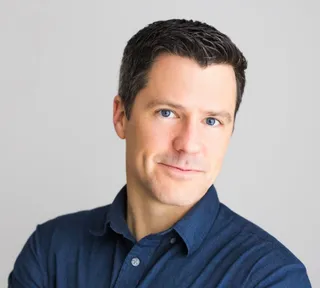Warming up for discovery interviews
Your first 2-3 discovery interviews will be rough. Plan accordingly.
Over the hundreds of customer research studies I've done that involve one-on-one interviews I've noticed one commonality:
This is true whether you've been doing discovery research work for 20+ years (like I have), or whether you're just starting out.
Why does this happen?
First, it takes time to get into a good "flow" of the questions you'd like to ask. You want to ask questions in an order that makes sense and results in a natural, conversational flow. That takes a few interviews before you get it right.
Second, it takes time to figure out which questions are working well and which questions need to be revised a bit (or eliminated entirely). You'll often write down a question in advance only to quickly find out it makes no sense to the person you are interviewing and/or is awkwardly worded.
Third, you're likely to be a little nervous. Embarking on discovery research can be nerve racking. What will the customers say? How will they react to your questions and concepts? Who am I to be interviewing someone like this? I've done many customer interviews with C-level executives from Fortune 500 companies sitting behind one-way glass listening to every word I said... At least you (likely) don't have to deal with that added pressure!
Finally, it can take time to get a feel for the personality of the people you're interviewing. For example, I used to do a lot of interviews with people working in IT. They have a "unique" personality and way of participating in customer/user interviews that can take some time to adapt to (no offense to IT folks!).
How should you deal with this?
My recommendations are:
- Don't interview your most promising or best customer first - Knowing that it will take a few interviews to get everything flowing well, you should save the best people to interview for later. No need to "waste" a potentially great interview when you're just trying to figure out your questions, flow and audience.
- Set expectations with your team/client accordingly - Tell anyone who is following along that it will take a few interviews before you get into the swing of things, and that if they are interested in following along they should tune in after the kinks have been worked out (i.e., past the first 3 interviews).
- Underweight the first few interviews in your analysis - While every interview you do can potentially yield surprising/useful insights, the first few may be less useful in the overall analysis because you're trying to get your bearings. I'm not suggesting to throw out these findings entirely, but you may want to underweight them in your overall analysis because there may have been methodological reasons why they were less relevant.
- Practice with a friendly audience first - If you have a patient friend or colleague that is willing to do a "mock" interview with you, that can go a long way to getting some of the kinks out before you go into a real interview. Professional researchers sometimes pre-test their discussion guides because each interview can cost their clients many hundreds or thousands of dollars and there is less margin for error. If you have the time, I'd recommend doing that as well...
Don't get down on yourself!
Even though I've been doing discovery research for 20+ years professionally (and for my own startup projects/products), I still have "difficult" interviews from time-to-time, especially in the first few interviews of any discovery research study.
Don't get down on yourself thinking you're a bad interviewer. Your first few are very likely to be rough - plan accordingly!
Customer Discovery Newsletter
Join the newsletter to receive the latest updates in your inbox.

